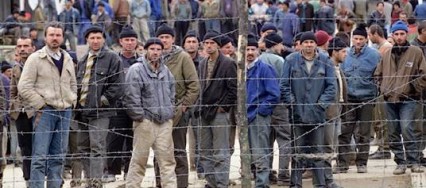Kansas, 2050. – The shit has hit the fan, years ago. The Surveillance State has diabolical proportions and every citizen gives voice to dissent, shows abnormal behavior or otherwise deviates from the average, is arrested. Family Grey has always lived comfortably, and during the first months after the crises (a term that was used mostly in singular in ancient times) began to hit, they were doing just fine. Sure, some of their tv programs had been reshuffled due to breaking news events that were more profitable to the broadcaster, the diesel generator had switched itself on more than once, the barking of the neighbor’s dog had stopped, and the delivery boys for the online grocery service looked increasingly fearful and undernourished.
But then neighbors began to be arrested for all kinds of reasons. One dark-skinned middle-aged man was detained for not owning a gun, and “probably being a weirdo who uses a chainsaw for self-defense”. A family of six was taken because they only had one car, thus “substantially harming the national economy”. A grandmother was put into prison for not growing her own vegetables in her garden patch, thereby “creating avoidable demand for already scarce centrally produced food products”. A toddler was taken to a FEMA-camp for peeing in a scrap yard, and “leaking valuable nitrogen our nation should recycle”.
Family Grey owned the average amount of firearms. They had 2.4 cars in their garage. Their quarter acre garden patch produced beautiful cauliflowers, tomatoes and artichokes, and when the State came to collect their pee, the bottles were always full. Family Grey was the perfect average family.
Family Grey was also the only family that didn’t live in a prison camp, because no bureaucrat had ever found anything on them. There was no reason to even arrest or torture them a little bit. This made them truly Special, and we could have seen it coming that officer Brown one day had the brilliant idea to use their celebrity to generate extra revenue. He called a number of prison camps and offered them to take their residents on an excursion to the house of the Grey family.
At first, the wardens weren’t convinced that this would be a good idea, but when Brown explained that sighting this family could have a soothing effect on the prisoners, that it would make them much more obedient, they decided to give it a try. Observing the wild family, from the safe distance of an armored bus of course, could instill into them the belief that they, too, were free. And there was plenty of psychological literature to show that this belief would make them much easier to manage.
